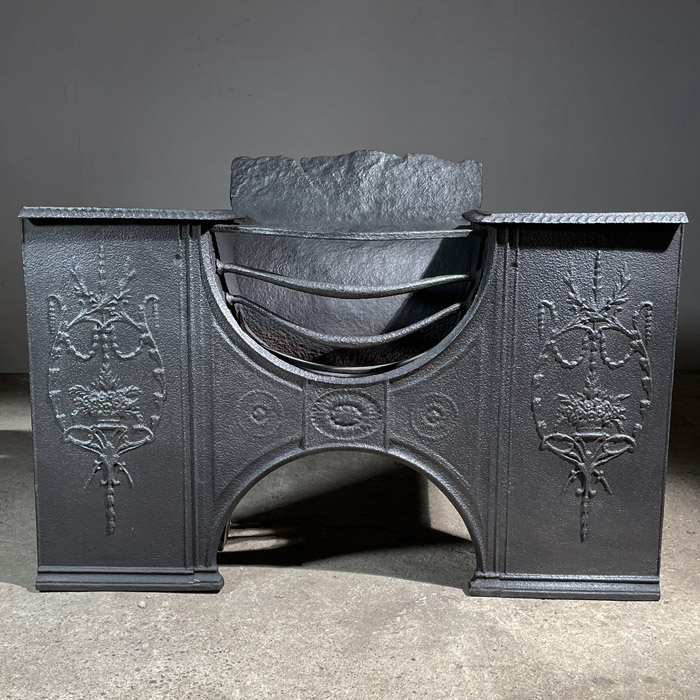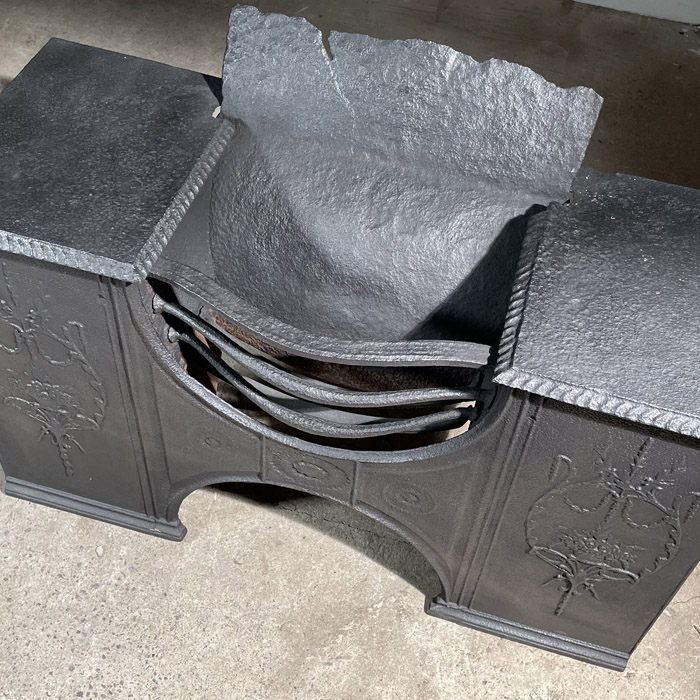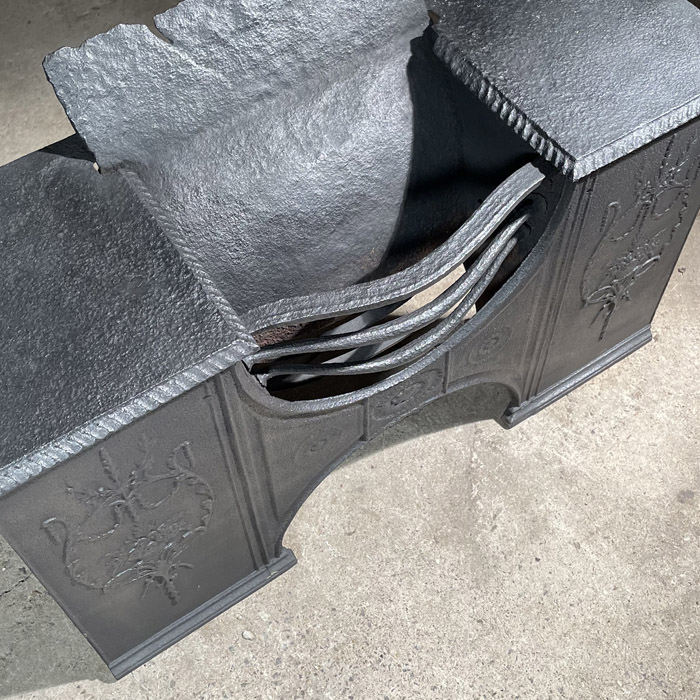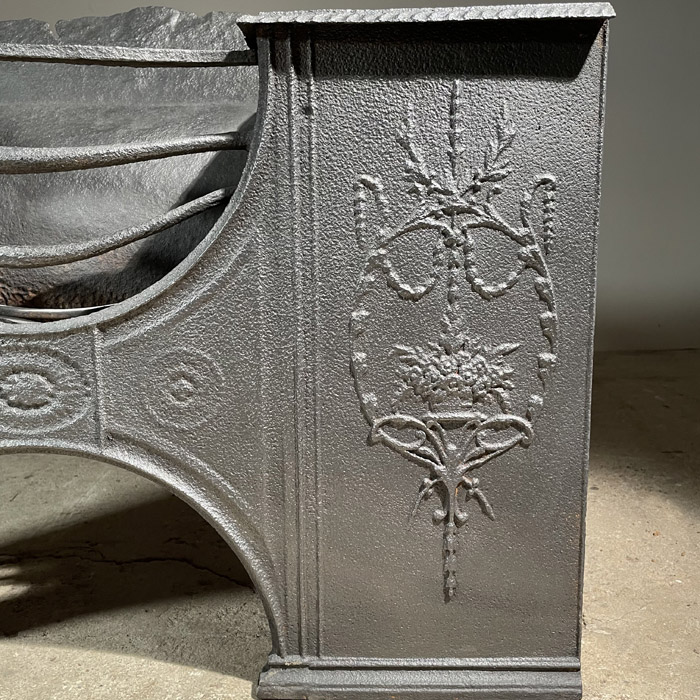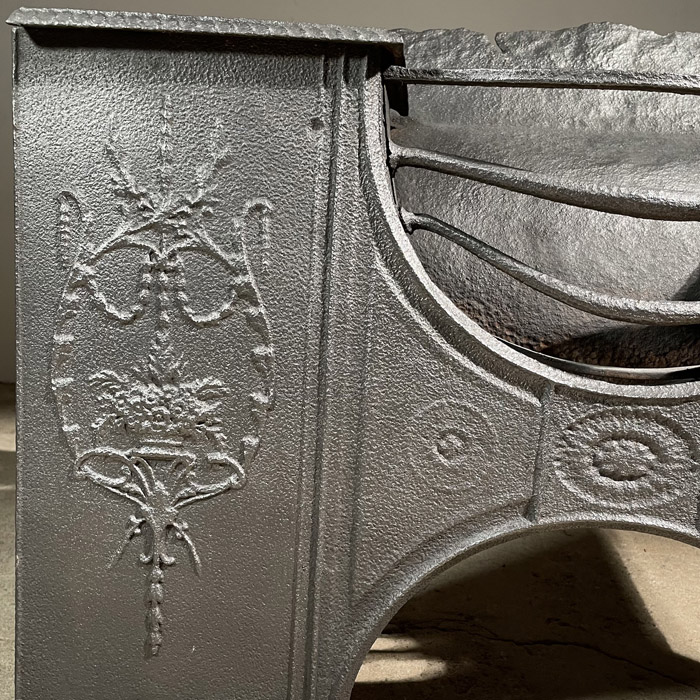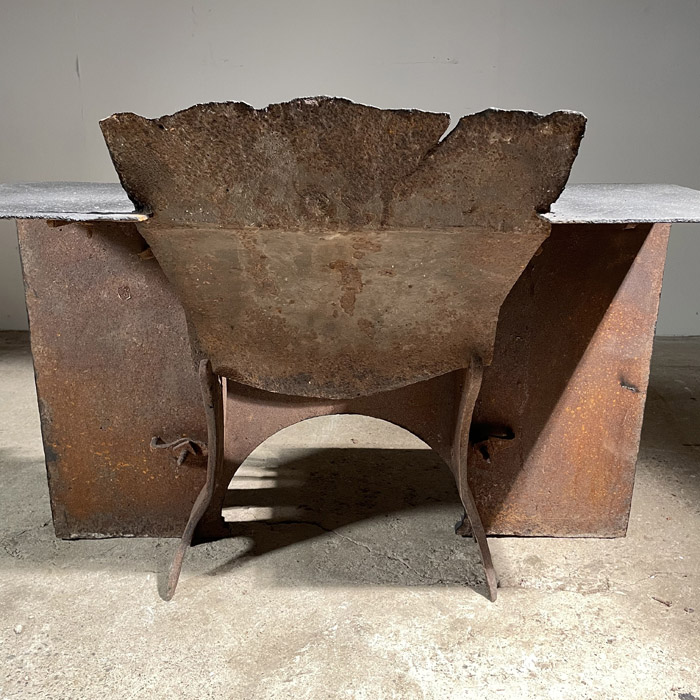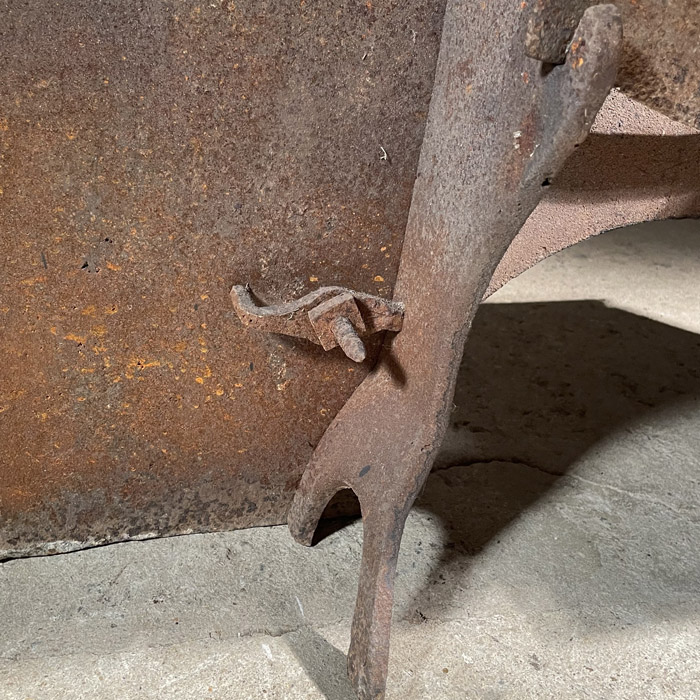Archived Stock - This item is no longer available
A George III cast iron hob grate
the rectangular backplate - shaped and worn from much use above the hob-plates with moulded edges, the duck's-nest basket with bowed rails (later re-seated), the hob-fronts cast in relief with delicate neo-classical motifs, baskets of flowers, bell-flower pendants and scrolls,
SOLD OUT
Out of stock
This is a good example of a Georgian hob grate being produced in the 1780’s or 1790’s. This format with wide hobs enabled the cooking and warming of food and water by the fire. The influence of Robert Adam can be seen in the relief-cast ornament – his brother John was both a share-holder and designer for the Carron foundry in Falkirk. Carron and Coalbrookdale were competitors at the time – with little design protection they readily copied each other’s patterns.
Recently Viewed Items
-
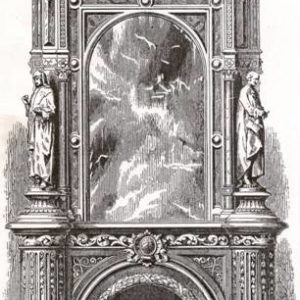
An important Victorian chimneypiece
An important Victorian chimneypiece
the Belgian black marble shelf with outset rounded ends, above a frieze applied with running scrolling foliate gilded electrotype metal appliques, the massive fluted column jambs applied with bellflower pendants raised on polygonal feet, the carved oak and walnut overmantel with an arched mirror plate bordered by inlaid marmo verde panels, the cornice centered by a portrait roundel depicting Isaac Newton in full relief, the flanking panels each with twin outset ionic order columns above the turned waisted socles to support figures personifying science and the arts,
-
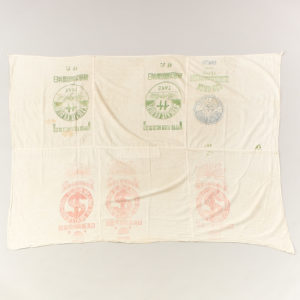
Japanese rice bag blanket,
£350Japanese rice bag blanket,
A large patchwork blanket with Nippon and Nis-shin flour branding hand printed on cotton. Boro translating as “scraps of cloth” in Japanese, Boro is a symbol of a “use everything and waste nothing” philosophy. It is a utilitarian material. Born from a period when Japan closed its ports to foreign goods, fabrics like cotton became extremely precious and rare. These materials were saved and repurposed from each generation to the next.£350

